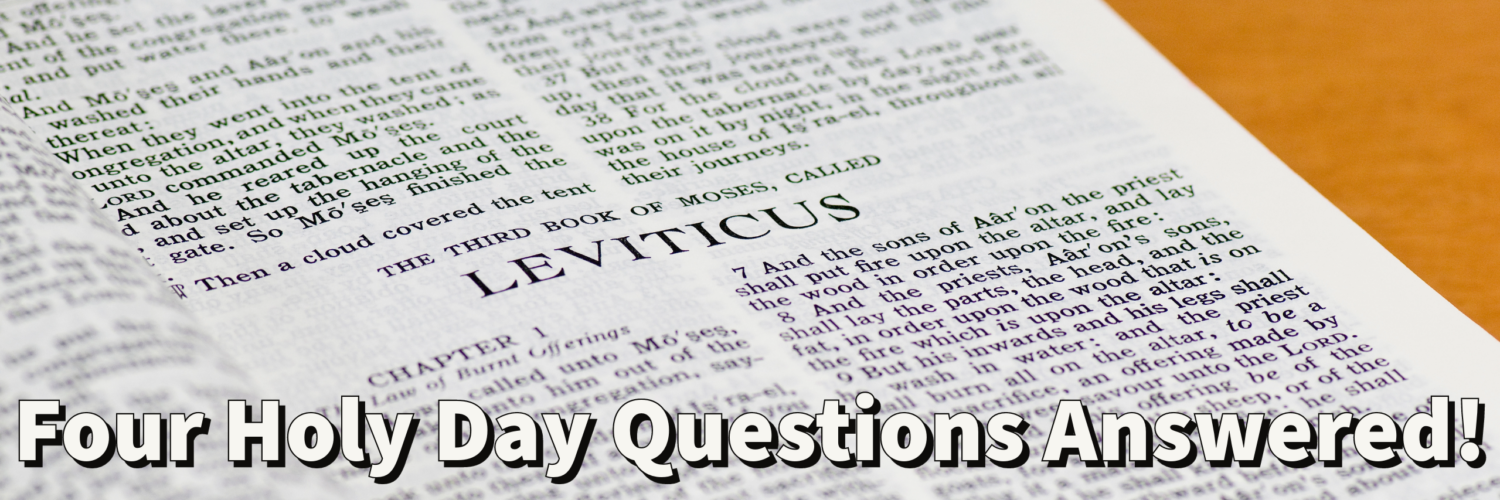
by Jason Babu
After coming back from the Feast, we start to prepare for the next Holy Days in the coming year. We will begin to save up our 2nd tithe and plan how to have better feast next year. In the midst of this exciting time and busyness of preparing for the Holy Days, we need to stop to think and meditate on the important reasons for keeping the Holy Days.
In simple questions- What, When, How and Why?
- What?
What are we commanded to keep/observe?
And the Lord spoke to Moses, saying, “Speak to the children of Israel, and say to them: ‘The feasts of the Lord, which you shall proclaim to be holy convocations, these are My feasts (Leviticus 23:1-2)
God commanded us to keep His feasts which include all seven Holy Days and He stressed strongly ‘these are My feast’.
2. When?
When are we commanded to keep/observe?
These are the feasts of the Lord, holy convocations which you shall proclaim at their appointed times. (Leviticus 23:4). God clearly said that His feasts must be kept according to their appointed time not to our own convenient days or time. For example:
Passover – Fourteenth day of the first month
Days of Unleavened Bread – Fifteenth day of the first month (For Seven Days)
Pentecost – Counting 50 days
Feast of Trumpets – First day of the seventh month
Day of Atonement – Tenth day of the seventh month
Feast of Tabernacles – Fifteenth day of the seventh month (For Seven Days)
Last Great Day – 22nd Day of the seventh month
3. How?
How are we commanded to keep/observe?
Again, we are not given liberty on how to observe these days. Read Leviticus 23 (full chapter) and see how God wants each of these days to be kept in the Old Testament. In the New Testament, Jesus Christ changed the symbols, but not its days. And He also commanded His Apostles to observe and to teach new converts who were coming to Church.
4. Why?
Why are we commanded to keep/observe?
The simple answer is because God commanded us to. There is no questions or arguments on this matter. It’s a straight forward instruction from God.
As we approach another year of celebrating Gods’ Holy Days, never forget the important meaning of these days. They begin with Passover, the first of God’s seven annual festivals and finish with The Last Great Day, and they outline His master plan. If we, like the world, reject these important days, we will also forget Gods’ plan and the purpose of our life.
Though you are not baptized yet and don’t have the Holy Spirit, it doesn’t mean you can’t live God’s way and keep the Holy Days. David was a youth when was anointed as King. Jeremiah was a teenager when God was using him to be a prophet. Daniel, Shadrach, Meshach and Abednego were young fellows when they were bought to Babylon to serve in the palace (Daniel 1:3-4). Remember, we have been separated from the world and blessed to know Gods’ master plan by keeping not just one, but all seven Holy Days.
To learn more about the Holy Days, please read our booklet “The Holy Days: God’s Master Plan”/ “Is Christmas Christian” / “Easter: The Untold Story.

